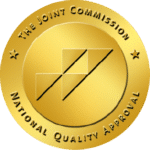
Image Source: FreeImages
It’s no secret that depression is one of the most widespread mental health disorders in the world. It affects nearly 350 million people globally, and almost seven percent of Americans will experience it at some point in their lives. Sadly, the number of cases is only increasing. Even more disturbing is the fact that its prevalence has doubled over the past few decades. As a result, researchers are scrambling to find new ways to treat this illness; and luckily, innovative solutions are popping up almost every day. For example, There’s now plenty of evidence to suggest that ketamine could be an effective treatment for depression. In this article, we’ll take a look at how it works, its potential side effects, and whether or not you should consider using it as a treatment at home for your own depressive episodes.
What Is Ketamine?
There are many different types of antidepressant drugs. But one that’s becoming increasingly popular at the moment is ketamine. Ketamine is an injectable drug that can be used both as an anesthetic and as a mood enhancing medication. It works by altering the levels of certain chemicals in the brain, in particular, the neurotransmitters norepinephrine and serotonin. These are chemicals that regulate mood, pleasure and pain sensation, sleep, and appetite. In fact, these neurotransmitters are believed to be responsible for up to 90% of depression symptoms. Ketamine works by increasing the levels of these neurotransmitters in the brain. This leads to a reduction in depressive symptoms, anxiety, and cravings.
How Does It Help with Depression?
As we’ve established, it increases the levels of norepinephrine and serotonin in the brain. However, ketamine also has another, less well-known, effect: blocking glutamate. This chemical is responsible for how we feel pleasure and pain, among other things. However, it’s also believed to be the reason why many people experience depressive episodes. Basically, when glutamate levels are too high, it can lead to the onset of depressive episodes. So by blocking it in the brain, ketamine can prevent these mood swings from occurring in the first place.
Side Effects of Ketamine for Depression
So far, it appears that ketamine is a very safe and effective treatment for depression. It has extremely few side effects. In fact, most people report feeling no significant difference after receiving the first injection. And even if they do experience some side effects, they’re usually not severe enough to stop the treatment for long. Unfortunately, the same can’t be said for all types of antidepressants. In fact, many of them have pretty severe side effects, including insomnia, agitation, sexual dysfunction, and even suicidal thoughts. Fortunately, studies show that ketamine is much safer than traditional antidepressant treatments. However, it’s important to keep in mind that not everyone can take it as an antidepressant.
Should You Try At-Home Ketamine Therapy for Depression?
In short, yes. It’s a fairly new field of treatment that’s still being researched. But it’s believed to be a very safe and effective way to treat depression. As we’ve mentioned, ketamine is an injectable drug. However, at-home ketamine treatment doesn’t require an injection. Instead, you can take it in the form of a nasal spray, or a tablet. If you’re experiencing mild to moderate depression, it’s important to see your doctor. Although ketamine can be an effective treatment, it’s not a cure-all. It’s best to use it in combination with regular therapy and antidepressant drugs.
Conclusion
Overall, the evidence suggests that ketamine is extremely effective and safe when used as an antidepressant. It doesn’t have any serious side effects, and it can be taken in various forms, making it accessible to almost everyone. Unfortunately, ketamine isn’t accessible to everyone due to the fact that it’s not a publicly available drug. However, there are plenty of studies underway that are testing home ketamine treatments. Thankfully, most of them seem to be just as effective as their injectable counterparts. So if you’re experiencing depression, it might be worth asking your doctor about ketamine. It might just be the treatment you need to get back on track.
If you have any questions about at-home ketamine for depression, please reach out anytime.
(310) 571-5957
www.ClearMindTreatment.com




